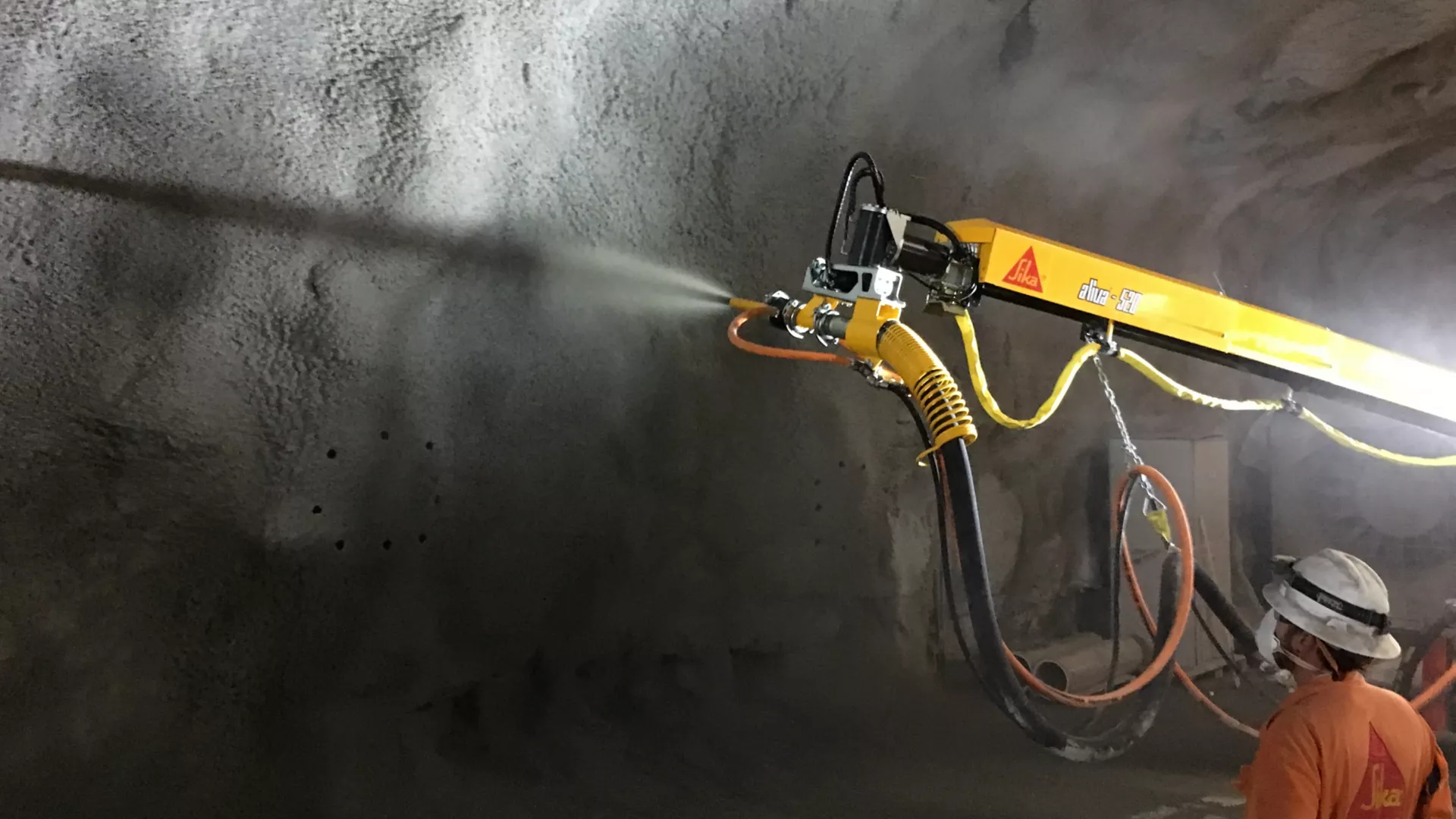Building tunnels is a complex and risky process that requires advanced engineering techniques to ensure structural integrity and safety. One of the most effective solutions in modern tunnel construction is shotcrete concrete. This method provides durability, strength, and flexibility to tunnel linings, making it essential for tunnel safety. In this blog, we’ll explore how shotcrete is used, its benefits, and why it plays a critical role in improving tunnel safety.
What is Shotcrete Concrete?
Shotcrete is a type of concrete that is sprayed at high velocity onto surfaces. Unlike traditional concrete, which is poured into molds, shotcrete is applied pneumatically, ensuring it adheres to surfaces such as walls, roofs, or tunnel interiors.
It comes in two main types:
- Dry-mix Shotcrete: The dry concrete mix is fed into a nozzle where water is added just before application.
- Wet-mix Shotcrete: The concrete is mixed with water before being pumped through a hose to the nozzle.
Both types provide excellent adhesion, making shotcrete ideal for curved or irregular tunnel surfaces.
How Shotcrete Enhances Tunnel Safety
- Immediate Ground Support
Shotcrete is applied immediately after excavation, which prevents rocks or soil from falling and stabilizes the structure. This rapid support minimizes the chances of ground collapse, enhancing worker safety during construction. - High Flexibility for Irregular Surfaces
Tunnels often have uneven surfaces that are hard to cover using traditional concrete. Shotcrete molds easily to complex shapes, ensuring there are no weak spots in the tunnel lining that could compromise safety. - Fire Resistance
Shotcrete is known for its excellent fire resistance. In the event of a fire inside a tunnel, the sprayed concrete lining can withstand high temperatures, giving emergency responders more time to evacuate and control the situation. - Reduced Risk of Cracks and Leaks
Unlike conventional concrete, shotcrete bonds well to surfaces, reducing the risk of cracks and water infiltration. This is essential for tunnels, as water leakage can weaken structures over time and lead to dangerous situations. - Long-Lasting Durability
Shotcrete’s high compressive strength ensures the tunnel lining stays durable for decades. This minimizes the need for frequent repairs and inspections, ensuring tunnels remain safe and operational over long periods.
Applications of Shotcrete in Tunnel Construction
- Subway and Railway Tunnels: Shotcrete provides essential support in urban transportation networks.
- Road Tunnels: Road tunnels need robust linings to withstand heavy vehicle traffic and fire hazards.
- Hydropower Tunnels: Shotcrete ensures water resistance and structural integrity in underground water channels.
- Mining Tunnels: In mining operations, shotcrete is widely used to stabilize underground cavities and prevent rockfalls.
How Tunnel Safety Regulations Depend on Shotcrete
Many countries have strict safety regulations for tunnel construction, including minimum fire resistance, structural stability, and water-proofing standards. The use of shotcrete plays a pivotal role in meeting these standards. Additionally, shotcrete enables contractors to work more efficiently, reducing the overall construction time and minimizing exposure to risks during the build phase.
The Future of Tunnel Safety with Shotcrete Technology
As tunnel projects become more ambitious, with larger diameters and greater depths, the demand for innovative materials like shotcrete is rising. New developments, such as fiber-reinforced shotcrete, are adding more strength and flexibility, further improving tunnel safety.
Additionally, automated spraying equipment and robotic shotcrete machines are reducing the risk of human error, ensuring consistent application in even the most challenging environments.
Conclusion
Shotcrete concrete is an indispensable material in modern tunnel construction. Its unique ability to adhere to uneven surfaces, resist fire, prevent leaks, and provide immediate ground support makes it a key contributor to tunnel safety. As technologies continue to evolve, shotcrete will remain at the forefront of ensuring the stability and safety of tunnels across industries such as transportation, mining, and hydropower.




